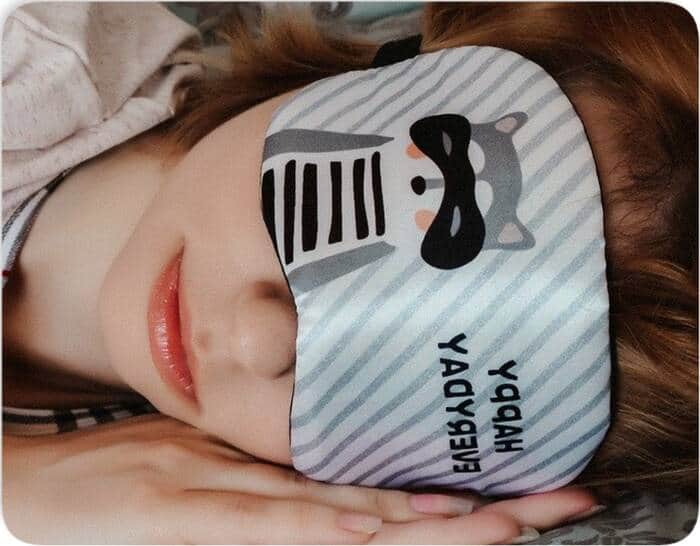How to stop grinding your teeth at night? What are the different methods and techniques to stop teeth chattering during sleep? Is there a miracle solution? And finally, can essential oils be used to relieve or cure bruxism?
I. Why Do We Grind Our Teeth at Night?
The grinding of the teeth, also called bruxism, can be due to the formation of the jaw.
Missing or misaligned teeth can cause bruxism patient discomfort. This may cause them to clench or rub their teeth in search of comfort.
The second cause is stress. Bruxism, especially nocturnal, is often a manifestation of stress and anxiety.
II. How to Stop Grinding Your Teeth at Night
Here are 8 methods and techniques to stop teeth grinding during sleep:
1. Night gutter
The night tray is a transparent device that you can wear before going to bed. It is a device that is placed on the lower jaw since that is where the movement starts.
Because it is segmental, it remains comfortable. By wearing it, you prevent your front teeth from touching. Your night will be more restful, with your jaw immobilized.
The night guard is made by a prosthetist after your dentist has taken impressions of your teeth.
2. The Biofeedback Technique
The biofeedback technique consists in using sensors. Once installed, these sensors are connected to an alarm clock.
At each bruxism episode, the sensors detect it and activate the alarm clock. The alarm clock then rings so that the patient is aware of it.
This is a proven solution, but it is not a long-term solution.
3. Botulinum Toxin
Botulinum toxin is the toxin from the bacteria that causes botulism. Also known as Botox, it is also used in cosmetic surgery.
An injection of botulinum toxin would be able to stop the contraction of muscles in the jaw, by blocking the nerve impulse.
4. Massage of the Jaw
Since bruxism is directly related to stress, relaxation plays a major role in the treatment of this problem.
In this context, a jaw massage is a way to avoid grinding your teeth at night.
Before going to bed, take 2 or 3 minutes to massage each side of your jaw. Run your fingers along the length of the jaw to make sure you touch the different joints involved.
During the day, for 1 to 2 minutes, relax your jaw with your fingers in your ears. Use lateral, zigzagging movements.
5. Avoid Caffeine and Alcohol
In the late afternoon, but especially in the early evening, it is important to avoid exciting substances like coffee and alcohol.
These products could increase your stress, and cause or accentuate your teeth grinding. The closer you get to bedtime, the more you should choose drinks without caffeine and alcohol.
Soothing herbal teas, for example, can relax you and minimize the risk of nighttime bruxism.
6. Avoid Stress
No one can avoid stress. But it is possible to manage it, with certain practices. Regular physical activity is an excellent way to manage stress.
You can go for long walks or join a gym to get motivated.
You can also take up meditation or yoga. Both of these practices promote breathing and are ideal for coping with stress on a daily basis.
Find a routine and make exercise a natural part of your life. It may be difficult at first, but you will soon see results.
7. Hypnosis
In the long run, it’s best to treat the root cause. Since stress is the main cause of bruxism, hypnosis is a way to avoid teeth grinding by eliminating the stress factor.
Hypnosis is one of the professional methods to relax. When practiced properly with an expert, it is very effective in managing daily stress.
8. Diet
Diet has a big influence on the health of the jaw. After all, everything you eat goes through your mouth first. If you are in the habit of eating hard foods, this will strain your jaw and may cause it to suffer from several ailments including bruxism.
Products such as chewing gum or apples require a lot of chewing. To rest your jaw, choose soft foods.
Revisit your diet, and whenever you can, try foods like yogurt or soup. This will soothe your jaw.
III. Is There a Miracle Solution for Bruxism?
There is no perfect remedy or ideal method for overcoming bruxism. Most of the tools used to stop teeth grinding are palliative solutions.
They give more or less results, depending on the case.
IV. When to Wear a Dental Tray?
The dental mouthpiece can be worn at night. It is used to prevent, during sleep, that the teeth do not touch each other and thus, stop the grinding.
But some resin aligners can sometimes be worn even during the day.
V. How to Know if You Grind Your Teeth at Night?
Because it is usually nocturnal (bruxism), it can be difficult to realize that you grind your teeth.
Jaw pain upon waking is often the first sign of bruxism. To this, we must add headache, neck pain, or sleep disorders.
Above all, bruxism causes damage to the teeth and gums. If you find yourself with several of these symptoms, there is a good chance that you will not grind your teeth at night.
VI. Bruxism: Treatment with Essential Oils
If you suffer from bruxism, it may be useful to turn to essential oils.
Always in the idea to fight against the stress responsible for the grinding of the teeth, the EO of true lavender, for example, can prove to be effective.
Just spray a few drops on your pillow before going to bed. The soothing virtues of this oil will help you sleep calmly.

